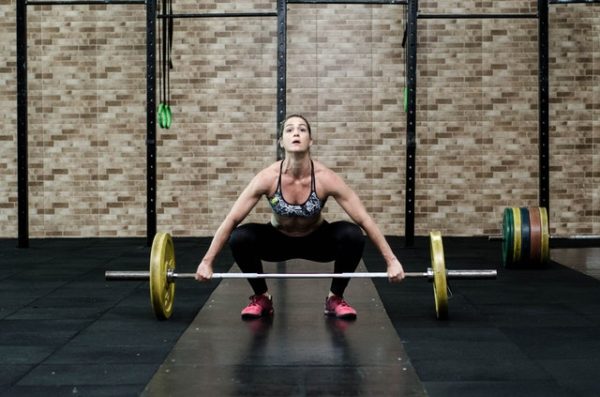Malaysia is known for many things.
The twin towers, the vast variety of culture, the distinct races and religions, the epic selection of ambrosial food, you name it, we have it.
Even the bad, the city’s hustle and bustle, the insane traffic during peak hours, the long, unpaid OT hours most hardworking Malaysians put up with.
This is us, this is our culture.
So today, we explore what exactly our culture has been contributing towards our national level of physical fitness.
There are three dominant sources of culture that creates the make-up of Malaysia, each incredibly distinct and unique from the rest. It would be fair to inspect each culture individually throughout this article, so just a heads up that I might be breaking it down by race for some sections.
Alright, let’s get started then!
Over the past 20 years, obesity and rates of diseases linked to physical inactivity have increased dramatically in Malaysia.
Our beloved country has also been identified as one of the least physically active countries in the WORLD, with over 60% of adults being considered sedentary.
The National Health and Morbidity Survey shows that, over the past 30 years, while physical activity rates among Malaysians have dropped dramatically, rates of type-2 diabetes have risen 4-fold and obesity has gone up 280%.
Are you shocked yet?
Because at this point, I was utterly floored.
We have, over the past 30 years, literally tripled in size.
Welcome to a world eerily similar to that of Wall-E’s.
Admittedly, changes in diet and physical activity are inevitable results of economic development. This is because high-calorie foods tend to become more easily available, and mechanization reduces the amount of physical exertion required in many daily activities.
These elements, however, seem to be especially prominent in Malaysia, with many indicators conveying Malaysia to be among the most sedentary nations in the world.
So now, let’s take a look at the correlation between Malaysian culture and health.
Correlation between Malaysian Culture and Health #1: Perception towards Women Working Out

Source: Isabella Mendes
Alright, before we begin the battle of the sexes, take a guess on which gender would win the fight of fitness?
Is it the ladies who love the lean life?
Or the men who muscle up more?
If you chose the men, you’re sadly correct.
Past research has shown that in predominantly Muslim countries, women are generally less active compared to their male counterparts, very likely due to the fact that many Muslims view physical activities as inappropriate for women.
And this trend appears to be especially pronounced throughout the Muslim world.
When Malaysia was investigated, this trend holds true. Malaysian women are indeed less physically active than men.
The research didn’t delve into a distinctive divide between Muslim women and non-Muslim women, but there is an undeniable cultural bias of traditional, especially Muslim, views on the role of women.
To many in our country, physical activity is often regarded as unfeminine and associated with lower social status.
This perception may have contributed to the Malaysian culture’s negative attitudes among women regarding the importance and desirability of exercise.
Another reason why women in Malaysia are more inactive is perhaps the lack of culturally acceptable venues for women (especially Muslims) to engage in exercise or physical activity.
In the eyes of Malaysian society, women exercising alone is considered unsafe and this may lead families to discourage women in their lives from getting the work out they need.
Correlation between Malaysian Culture and Health #2: Race and Rationality towards Exercise

Source: enshahdi
Alright, let’s delve into identifying the physical fitness of Malaysians by their ethnicity.
As we know, the different races have their own habits and preferences when it comes to physical activity and diet, which is why some diseases diagnosed have ethnicity patterns.
So let’s get into it. A study shows that Malaysian Chinese participants were the least physically active ethnic group and the least likely to engage in moderate or vigorous activity. This strong data may suggest that there are normative aspects of the Malaysian Chinese culture that shuns or discourages exercise. Perhaps this outdated viewpoint that being overweight signifies wealth and prosperity may be playing with local perception. Elderly Malaysian Chinese, however, were found in one study to be more active than their Indian and Malay counterparts.
In this same study, Malaysian Indians were found to be most likely to engage in light exercise such as gardening, housework, bowling, fishing, carpentry and even leisurely walks.
Correlation between Malaysian Culture and Health #3: Education and Exercise

Source: Pixabay
There is an abnormal skew for the results here in Malaysia compared to most Western countries. The norm for this factor would be that with higher levels of education comes higher levels of fitness and engagement in physical activity.
Surprisingly, this is not the case for our country, again suggesting that there may be an underlying cultural orientation among Malaysians that devalues physical activity.
Many Malaysians have this ingrained perception that physical activity is too difficult, not rewarding, uncomfortable, dangerous, or just generally uninteresting.
Even secondary school students, at an age crucial in forming long-term exercise habits, show a general lack of interest in fitness and exercise, which does not bode well for the future.
Because of this cultural devaluation, those who do have the resources to engage in healthier, active lifestyles, seem to be deciding not to do so.
A very curious find indeed. Perhaps this could be due to lack of awareness or promotion of physical activity as enjoyable and desirable, especially among youths. Or absence of accessible and safe environments for interested people to engage in physical activity. If you have any idea why our society disregards the value of exercise so easily, leave a suggestion in the comments below so we can try solving this problem together.
Correlation between Malaysian Culture and Health #4: Malaysians’ Perceived Locus of Control

Source: Pixabay
Locus of control is the extent you feel in control of the events that influence your life.
This factor is generally tied very closely with education. As rule of thumb, the higher the level of education, the higher the locus of control.
But, in Malaysia’s case, our perceived locus of control does not correlate positively with physical activity.
In fact, results of the study show a negative correlation. Malaysians with higher internal locus of control surprisingly engage in less physical activity.
This inconsistency with previous studies, again, appears to point towards a general cultural orientation that does not prioritize physical activity and, in some cases, even casts it in a negative light.
For many Malaysians, given the choice, simply don’t see exercise being a desirable way to spend their time.
This is probably the root cause of why Malaysian are seeing a downward spiral of health issues for the past few decades.
We need to understand how dire this situation is and educate and encourage each other to start pursuing a healthier lifestyle, especially for the younger generation.
Correlation between Malaysian Culture and Health #5: A Leisurely Lack of Lunges

Source: Stokpic
When we exit the house to hang out with friends, where do we always choose to go? What do we often choose to do?
Yup, if the thoughts ‘yum cha at a mamak’ or ‘desserts at a café’ came to mind, you’re a Malaysian alright.
Our leisure activity options don’t include any that contain much physical activity. The one that involves most physical movement would be that of window shopping in one of Malaysia’s gazillion malls.
There isn’t a prominent culture of working out together, going for a run or hike with a buddy or playing a game of basketball, especially so among the ladies. Admittedly, footsal or badminton nights are beginning to get quite common, which is great! But most of our activities revolve around food and technology. Let’s begin a more active culture here in Malaysia! The next time your friends suggest a buffet binge, pipe up and persuade everyone for a Frisbee or badminton game instead!
A healthier lifestyle is easier lived with friends and family that are equally as health conscious as you are. And it’s up to us to start nurturing that culture. If we love them, we would want the best for that, and that includes their health.
Correlation between Malaysian Culture and Health #6: What should we do about it?

Source: Pixabay
To summarise everything we discussed, studies have recently shown that 61% of Malaysians are physically inactive. This, coupled with many unhealthy eating habits has birthed a society where rates of obesity are increasing at alarming rates. And studies show that the single most significant contributor to this problem, is that Malaysians, in general, seem to have a devalued perception towards the importance and desirability of physical activity as a leisure-time pursuit.
The best place to start changing such attitudes would be among Malaysia’s youth. We need to start promoting exercise and physical activity as enjoyable ways of spending time. Whether it’s through encouraging parents to engage in physical activities with their young children and buying them fitness related gifts, or introducing recreational sports during PJK classes, or holding community-based recreation programs, it is vital that we condition children to develop the habit of enjoying themselves through physical activity from an early age.
For adults however, they are the more difficult segment to tackle, what with their time being split into work, caring for family and their necessary alone time. Still, small steps can be made, like using the stairs instead of taking the elevators and exercising in front of the TV.
Actually, here is an article of 14 practical tips to get fit in Malaysia, so knock yourself out!
Malaysian Culture Does Effect Malaysia’s Health

Source: Pok Rie
I hope you’ll benefit leaps and bounds with these explanations on correlation between Malaysian culture and health. If you would like to know 6 Reasons Why the Malaysian Lifestyle Leads to Obesity, go here!
If you have a great tip on how to get fit and live healthy in KL, do share it in the comments below, however insignificant you think it might be.
Your tips might not even occur to others and may make a huge difference in the life of another.
So let’s cultivate that Malaysian sharing spirit and help each other out in our universal strive for personal fitness!
For more tips and tricks on how to get fit, specifically in KL, subscribe and we’ll send you useful advice, articles and videos to help you keep your fitness level up!
Welcome to this journey to better health!


